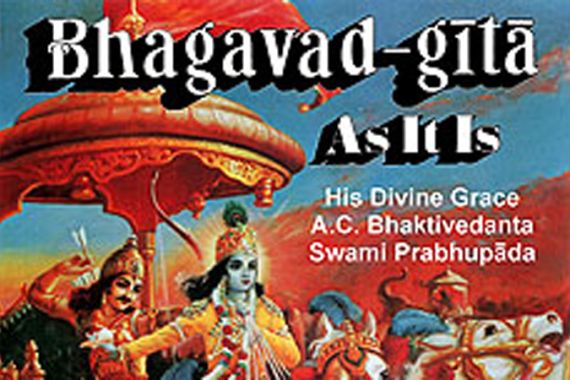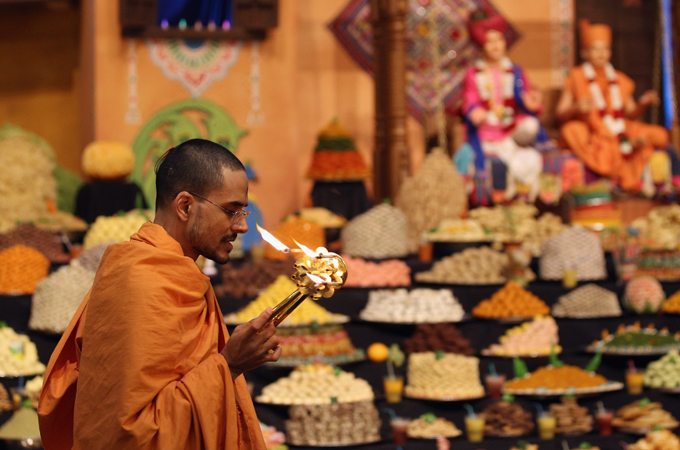Russia court rejects ban of Hindu text
Judge dismisses claims that religious text central to the global Hare Krishna movement is “extremist”.

 |
| Hare Krishna followers in Russia see the Russian Orthodox Church’s hand behind moves against the movement [Getty] |
A Russian court decided not to ban a religious text central to the global Hare Krishna movement, rejecting claims that the text is “extremist” and ending a case that has angered Hindus around the world.
The Indian foreign ministry on Wednesday said it appreciated “this sensible resolution of a sensitive issue.”
Prosecutors in the Siberian city of Tomsk had argued that the Russian translation of “Bhagavad Gita As It Is” promotes “social discord” and hatred toward non-believers, causing an outcry in India, where many considered the proposed ban a violation of the rights of Hindus in Russia.
The text is a combination of the Bhagavad Gita, one of Hinduism’s holiest scriptures, and commentary by A.C. Bhaktivedanta Swami Prabhupada, founder of the International Society for Krishna Consciousness, which is often called the Hare Krishna movement.
The prosecutors had asked the court to include the book on the Federal List of Extremist Materials, which bans more than 1,000 texts, including Adolf Hitler’s “Mein Kampf” and books distributed by the Jehovah’s Witness and Scientology movements.
Alexander Shakhov, a lawyer for Hare Krishna devotees in Tomsk, said the group is satisfied with the court’s decision.
Yury Pleshakov, a spokesman for the group in Moscow, said the book in question has existed in Russia for 25 years and has never inspired violence or extremist activity.
The trial, which began in June, followed this year’s ban on the construction of a Hare Krishna village in Tomsk and was based on an assessment by professors at Tomsk University.
After hearing further testimony from academic experts on Wednesday, the judge ruled that the prosecutors’ claims were unfounded.
‘Not about Bhagavad Gita’
The Russian Foreign Ministry had insisted the Tomsk court was not taking issue with core Hindu scripture itself, but rather with the author’s commentary and poor translation in “Bhagavad Gita As It Is.”
“I would like to emphasize that this is not about ‘Bhagavad Gita,’ a religious philosophical poem, which forms part of the great Indian epic Mahabharata and is one of the most famous pieces of the ancient Hindu literature,” ministry spokesman Alexander Lukashevich said at a briefing in Moscow last week, adding that the book was first published in Russian in 1788.
Still, followers of the Hare Krishna movement in Russia saw the proposed ban as a result of continued intolerance of minority religions by the Russian Orthodox Church. Pleshakov estimates there are at least 150,000 Hare Krishna devotees in Russia.
In 2005, a Russian Orthodox archbishop asked the mayor of Moscow to ban the construction of a proposed Hare Krishna temple, calling the Hindu deity Krishna “an evil demon, the personified power of hell opposing God,” according to Interfax. The temple was later allowed in a Moscow suburb.